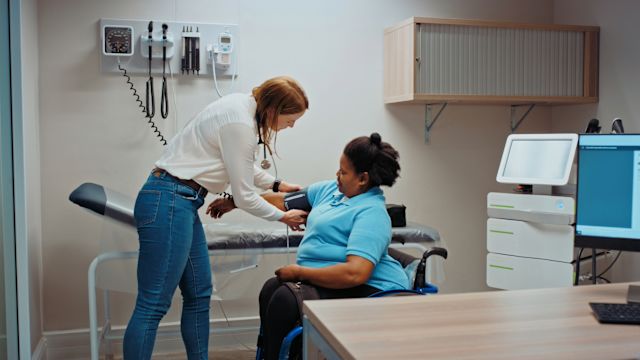Updated on August 20, 2024
For anyone who wants to lose weight to improve their health, lifestyle changes are typically the recommended starting point. But for many people, lifestyle changes alone are not enough to achieve the kind of weight loss that can have a significant impact on health and well-being.
Many people who want to lose weight to improve their health are finding success with weight loss medications, specifically newer medications that have become available in recent years. The choice to use a weight loss medication is a decision every person will need to make with the guidance of a healthcare provider.
Should you consider a weight loss medication?
If you feel a weight loss medication can help you achieve your weight loss goals, your first step will be to talk to a healthcare provider. If you have a primary care provider, this is often a good place to start. You may also want to seek out a healthcare provider that specializes in weight loss treatment.
Here are four things you and your healthcare provider should discuss when considering a weight loss medication.
You meet the eligibility requirements
Like every medication, weight loss medications are approved for specific circumstances. Your healthcare provider can determine if you are eligible for a weight loss medication, and what medication to prescribe. Weight loss medications are typically prescribed for people who have a BMI (body mass index) of 30 or higher, or people who have a BMI of 27 or higher plus a health condition related to being overweight, such as cardiovascular disease, high blood pressure, or diabetes.
You’ve tried other weight loss programs
Weight loss medications are typically prescribed when lifestyle interventions have not worked or have not worked well enough. If you haven’t tried a lifestyle-based program for weight loss, your healthcare provider may recommend starting with that approach before considering other options like medications. Good nutrition and physical activity will also be important when taking a weight loss medication—medications are most effective when used alongside these interventions.
You’ve reviewed the benefits and risks
Before taking any medication for a health condition, your healthcare provider should perform a health assessment. This can help determine the ways that weight loss can benefit your health. It can also alert your healthcare provider to any risks that may be involved in taking a medication, such as interactions with other medications or side effects that could affect the treatment of a coexisting health condition.
A health assessment may include:
- A physical exam
- Blood tests
- Discussing medical history and family medical history
- Evaluating existing health conditions
- A look at all medications you are taking, including prescription medications, over-the-counter medications, vitamins, and supplements
- Discussing pregnancy or plans to become pregnant
Are you ready to start a weight loss medication?
When considering a weight loss medication, it is important to know what to expect, and to recognize any possible difficulties or barriers that may prevent you from taking your medication. You will want to discuss these with a healthcare provider.
Before starting a medication, you will need to know:
- How the medication works
- How the medication is taken and how often
- How much the medication costs, if any part of treatment is covered by insurance, and what the out-of-pocket expenses will be
- When you will need follow up appointments
- Potential side effects and what to do if you experience a side effect
- How you will know if the medication is working
- What you will do if the medication does not work
- Habits or activities you will need to avoid while taking the medication
It’s important to remember that weight loss is different for everyone, and if you are concerned about your weight, it’s a topic worth discussing with your healthcare provider.




